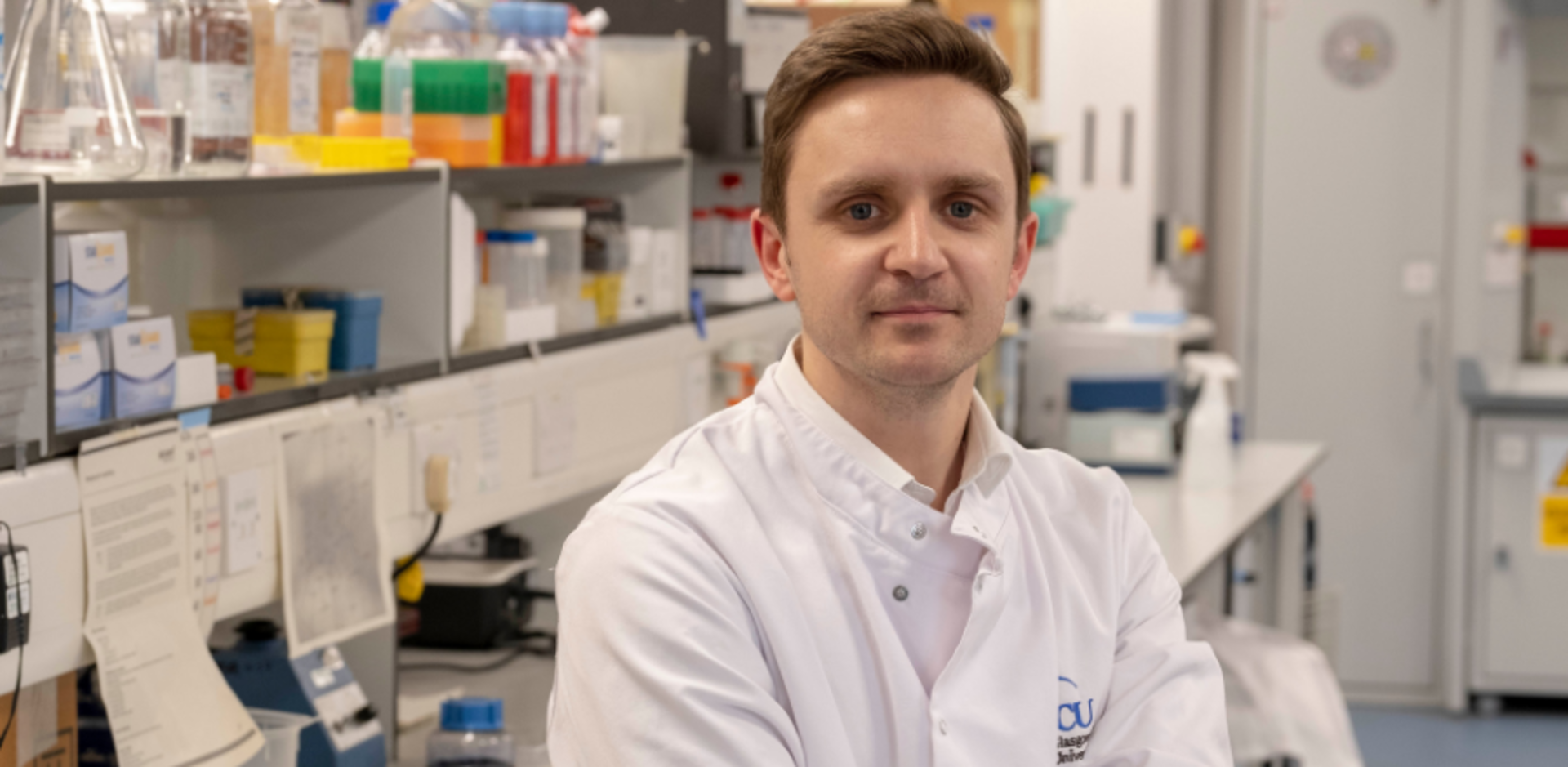Cancer expert clinches charity funding for leukaemia research

Blood cancer scientist Dr Mark Williams has been awarded £133,000 from three charities to help fund his research into therapy resistance in Acute Myeloid Leukaemia (AML) patients.
The largest grant of £100,000 is from The Academy of Medical Sciences Springboard Award. It is a major accolade for Glasgow Caledonian University and it is a first for the Research Centre for Health (ReaCH).
Dr Williams has also been awarded £30,000 from the Sylvia Aitken Charitable Trust and £3,000 from the Miss AM Pilkington Charitable Trust – all charities help fund medical research.
Associate Dean Research Professor Kay Currie said: “We are absolutely delighted that Dr Mark Williams has been awarded The Academy of Medical Sciences Springboard Award for Early Career Researchers.
“This is the first year that colleagues from the Research Centre for Health in the School of Health and Life Sciences have participated in the scheme, and Mark’s success epitomises the determination and commitment to research development that we aim to foster here at Glasgow Caledonian University.
“The opportunities afforded to Mark by this grant will benefit his personal research programme, and will also provide valuable learning to be shared with our wider Early Career Researcher community.”
Molecular mechanisms of long-term conditions research group lead Professor Linda Scobie said: “Mark has worked extremely hard to achieve these awards and it is testament to his dedication and resilience that he has been successful.”
The Springboard Award will pay for a full-time post-doctoral researcher for 18 months to help support the studies in Dr Williams’ lab, focusing on macrophage-driven therapy resistance.
Macrophages are large white blood cells that are an integral part of the immune system. Their job is to locate and destroy disease causing organisms.
Dr Williams has been working closely with world-leading AML expert Dr Monica Guzman, from Weill Cornell University in New York, over the years. He was the first scientist to import a cutting-edge research technique from the US to the UK, with the long-term aim of increasing survival rates in patients diagnosed with AML.
The 3D model system recreates how leukemic cells interact with macrophages and could help enhance the killing effects of chemotherapy and aid in the discovery of new targeted therapies for adults with AML. There are around 2,600 AML deaths in the UK every year, according to Cancer Research UK.
Dr Williams said he was “absolutely delighted” to receive the extra funding from the three charities, which will complement his research visit to the US this year to work with Dr Guzman using AML patient-derived macrophages.
He added: “This extra funding will help me support and continue the exciting research in my lab that is focusing on macrophage-driven therapy resistance in Acute Myeloid Leukaemia, and I gratefully appreciate the charities choosing to fund the research.
“To receive a Springboard Award from The Academy of Medical Sciences is amazing. It is very prestigious and year on year it’s been getting even more competitive.
“I couldn’t have done it without the support of Professors Kay Currie and Linda Scobie. They helped me apply for this crucial and significant funding scheme.
“With the extra funding, for the first time we are going to be looking at characterising macrophage cell sub-types in AML patients and determine the impact they have on therapy resistance and AML cells.
“We are hoping that in the long-term this research could enable clinicians to predict the disease course of a patient and personalise particular treatments to help them live longer.”
Dr Williams is based in the Department of Biological and Biomedical Sciences and more about this and other work can be found here https://www.gcu.ac.uk/hls/research/researchgroups/molecularmechanismsoflong-termconditions/
